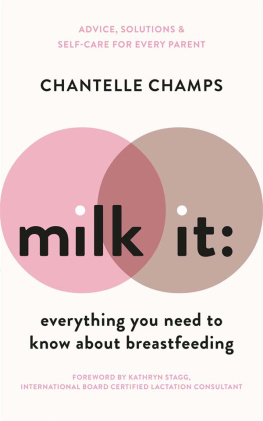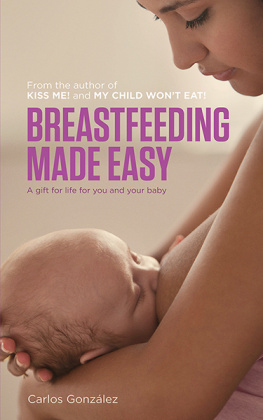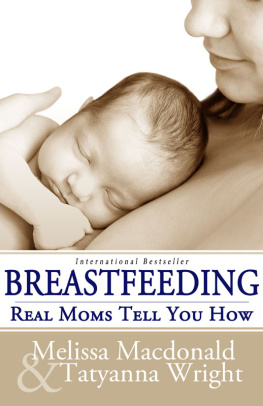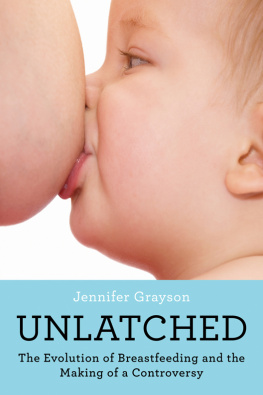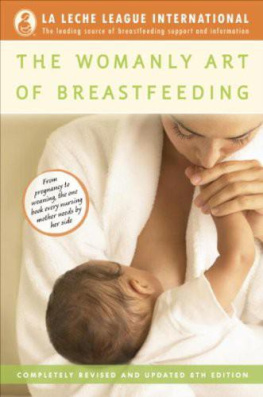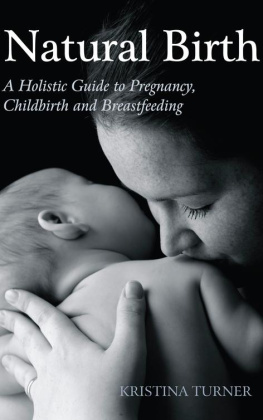Negotiated Breastfeeding
Based on an ethnography of postpartum consultations by independent midwives in Switzerland, this book produces unique insights into home birth parents breastfeeding journey from the first hours after birth to weaning. Considered the natural continuity of childbirth without intervention, breastfeeding is a fundamental component of the holistic, continuous, and individualised care independent midwives provide as they engage with parents in a shared construction of meaning around breastfeeding.
This book offers new perspectives on the conceptualisation of breastfeeding as a shared process. Parents, in collaboration with their midwife and baby, are jointly constructing negotiated breastfeeding. As the child grows and develops, questions arise regarding the management of risks, the construction of the lactating body, the body work required, and the perception of breastfeeding as a means of communication with the child, consistent with a child-centred approach to parenting. Fostering a reflection on the contrasts and similarities between the marginal model of holistic care and the dominant biomedical model, this book sheds light on issues of a broader scope: the relationship to health risks and health promotion, gender inequalities regarding parental roles and responsibilities, the concept of the child as a project, and the consequential intensification of parenthood. The book also explores transversal themes by outlining how reproduction and parenting are undertaken in Switzerland, framed by the local cultural, political, and economic context, including the gender system and resulting power relationships.
Caroline Chautems is a Swiss National Science Foundation research fellow at the Institute of Social Sciences, University of Lausanne, Switzerland. She is also a lecturer at the Geneva School of Health Sciences. A social and medical anthropologist, Dr Chautems is currently working on Swiss caesarean culture, including the emergence of new obstetrical and therapeutic practices. Her research interests focus on reproduction and parenthood, with particular attention given to gender and bodies in regard to parenting and health policy.
Social Science Perspectives on Childbirth and Reproduction
Series editor: Robbie Davis-Floyd (Rice University, Houston, Texas)
This series focuses on issues relating to childbirth and reproduction from social science perspectives. It includes single-authored, co-authored, or edited books concerned both with peoples reproductive experiences and with birth practitioners such as midwives (both professional and traditional), obstetricians, nurses, doulas, and others. It seeks to provide new viewpoints on functional and sustainable birth models and the challenges to their creation and maintenance, as well as on obstetric violence, disrespect, and abuse and their root causes. Single-case or comparative ethnographies on birth and other reproductive issues are featured, from high-tech conceptions to normal pregnancy and birth, including reproductive politics and human-rights issues in reproduction worldwide.
Birthing Models on the Human Rights Frontier
Speaking Truth to Power
Edited by Betty-Anne Daviss and Robbie Davis-Floyd
Midwives in Mexico
Situated Politics, Politically Situated
Hanna Laako and Georgina Snchez-Ramrez
Birthing Techno-Sapiens
Human-Technology Co-Evolution and the Future of Reproduction
Edited by Robbie Davis-Floyd
Negotiated Breastfeeding
Holistic Postpartum Care and Embodied Parenting
Caroline Chautems
https://www.routledge.com/Social-Science-Perspectives-on-Childbirth-and-Reproduction/book-series/SSPCR
Negotiated Breastfeeding
Holistic Postpartum Care and Embodied Parenting
Caroline Chautems
First published 2022
by Routledge
2 Park Square, Milton Park, Abingdon, Oxon OX14 4RN
and by Routledge
605 Third Avenue, New York, NY 10158
Routledge is an imprint of the Taylor & Francis Group, an informa business
2022 Caroline Chautems
The right of Caroline Chautems to be identified as author of this work has been asserted by her in accordance with sections 77 and 78 of the Copyright, Designs and Patents Act 1988.
All rights reserved. No part of this book may be reprinted or reproduced or utilised in any form or by any electronic, mechanical, or other means, now known or hereafter invented, including photocopying and recording, or in any information storage or retrieval system, without permission in writing from the publishers.
Trademark notice: Product or corporate names may be trademarks or registered trademarks, and are used only for identification and explanation without intent to infringe.
British Library Cataloguing-in-Publication Data
A catalogue record for this book is available from the British Library
Library of Congress Cataloging-in-Publication Data
A catalog record has been requested for this book
ISBN: 9780367643522 (hbk)
ISBN: 9780367643546 (pbk)
ISBN: 9781003124108 (ebk)
DOI: 10.4324/9781003124108
Typeset in Sabon
by Deanta Global Publishing Services, Chennai, India
To my mother, my grandmother, and all the women who were told by misinformed health professionals that they were not able to breastfeed their babies.
Contents
This book is based on an extensive ethnography by Dr Caroline Chautems into the experiences of breastfeeding in home birth parents and their postpartum consultations with independent midwives in Switzerland. It is truly an honour to be invited to write the foreword for this excellent piece of scholarship by a social and medical anthropologist who has, through rigorous and time-consuming ethnographic study, vividly illuminated an anthropological perspective on the lived, embodied practice of breastfeeding by mothers in collaboration with their babies, partners, and independent midwives.
As a midwife whose research training and expertise are in ethnography, I have observed that the fields of medical anthropology and midwifery have many interconnections. The anthropologist spends extensive hours conducting ethnographic fieldwork, quietly observing, listening, asking questions, and analysing. The skilled midwife, likewise, observes the mother as she labours, gives birth, feeds, and cares for her new baby, intervening only when necessary. Both, the anthropologist and the midwife, over time, come to know and understand the participants. The participants, in turn, develop a growing trust in the person accompanying them on their journeys. Both anthropologist and midwife reflexively attune to explicit and tacit knowledges through participating in peoples lives, ideally over a considerable period of time. Both have complex ethical issues and dilemmas to consider; indeed, as Spradley (1980) argues, the ethnographer is required to actually protect the sensitivities, rights, and interests of participants. This is also the case for midwives when supporting women, their partners, and their babies during a very important time of their lives.
Dr Chautems firstly provides a socio-cultural, political, and economic context of how reproduction and parenting are undertaken in Switzerland. As in many other industrialised countries, home births are marginal and contrast with the institutionalised, medicalised settings within which most women give birth. The author describes an in-depth ethnography having attended one hundred and 18 postnatal postpartum visits by 11 independent midwives, observing between one and eight midwifefamily consultations per family. She also conducted two to six interviews with each mother or couple during the period of breastfeeding. She adopts an anti-essentialist stance and a critical gender perspective in describing the breastfeeding project and associated embodied parenting styles of the home birth parents who were participants in the study.


